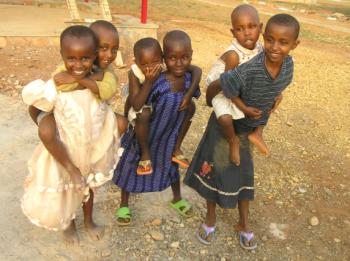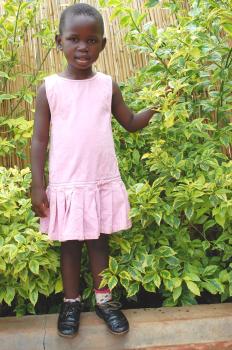Peace has returned to Burundi – but the process of recovery is slow

Cibitoke, capital of the province of the same name, is located in the north-west of the country and was hit the hardest by the state of crisis that began with the 1993 coup, leading to a violent civil war in the following years, and the on-going socio-political conflicts in the region. The region was marked by large numbers of victims, streams of refugees and internally displaced people, and the disintegration of the social and economic infrastructure.
At the height of the conflict, in 1999, there were around 800,000 internally displaced people in the country, living mainly here in the north. As of 2011, there were still almost 80,000 people living in 120 settlements for the internally displaced in northern and central Burundi. Most of these people are extremely poor and do not own the land they were resettled on. Many lost all their possessions and the land they previously owned in their regions of origin. Many are still waiting for the government to decide whether they are to return, integrate locally or resettle elsewhere.
Despite being predominantly rural, Cibitoke is one of the more densely populated provinces in the country, with six per cent of the nation’s population living here. The situation of children and young people in the region is extremely tough: just 67.3 per cent of children live with both of their parents; over nine per cent of children have been abandoned or separated from their parents. More than 30 per cent of women raise their children on their own and live in great poverty. Just 13 per cent of children are in a position to go to school.
Especially in those areas hosting many internally displaced people, schools and health services are frequently overloaded and land access becomes increasingly competitive. As a consequence, food insecurity, lacking educational and social services, as well as the threat of measles and cholera outbreaks, continue to endanger the healthy development of children.
An urgent need to support families
The SOS Social Centre here, which also includes a medical centre, was opened with the aim of providing the people in the neighbourhood with medical care, informing them about preventative measures, providing troubled families with social and material assistance, and offering counselling in matters of education, parenting skills, and nutrition. The social centre also provides guidance on finding employment and generating an income to parents. In cooperation with local organisations, we work to strengthen families that are living in poverty so that children can grow up in a secure and loving home.
What we do in Cibitoke

For children from the region who are no longer able to live with their parents, twelve SOS families can provide a loving home for up to 120 children. In each family, the children live with their brothers and sisters, affectionately cared for by their SOS mother.
Around 75 children from both the children’s village and the neighbourhood attend the SOS Kindergarten, ensuring that children from SOS families make friends and are integrated into the local community from a young age. The provision of day-care is particularly valued by parents who need to go out to work or look for a job during the day, as they can leave their children in safe hands.
The children then go on to complete their primary education at the SOS Hermann Gmeiner School in Cibitoke, which is attended by over 230 pupils, making it a valuable educational institution in the region.